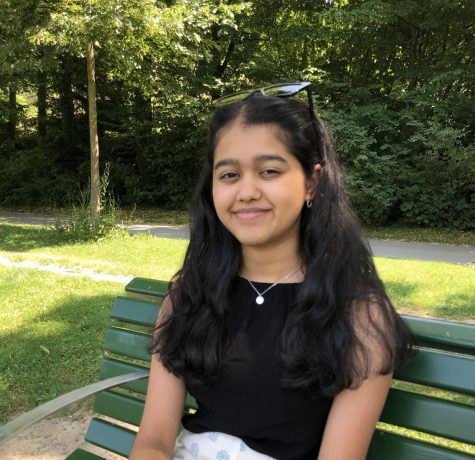A Miss-Leading Vote
ISL’s student parliament represents the student voice– much like The High. Its efforts have led to several meaningful changes over the years of its existence, and behind the scenes is a student team dedicated to creating a bridge between the student body and other members of our community. Guiding the construction of said bridge are the two co-presidents: two students of different genders.
Leading a group with such influence is an honour, and this is clearly reflected in the fact that the role of co-president is in high demand– at least, among the boys. Yet there seems to be a feeble sense of enthusiasm coming from the girls. Just a few weeks ago, we witnessed six candidates take the stage for the 2022 student elections– of which only one was a girl.
Although there was someone standing up to represent the girls in our student population this year, the lack of non-male candidates was notable last year as well. Is this going to be the trend for elections to come?
This isn’t the first time that we have seen such disparities in gender. It is well-known by now that women are underrepresented in too many fields: business, engineering, drama, you name it. Low numbers of women allow the exclusion of a vast group of voices in society– again, something we know but haven’t completely changed yet. Hopefully, we aren’t seeing this dreadful reality creep through the doors of ISL during the election season. Despite this, female employees work just as effectively, if not contributing more to the employee community– women are twice as likely to lead DEI initiatives and serve as allies to their colleagues according to a study on women in the workplace (Krivkovich et al, 2022).
The environment at ISL seems welcoming and students seem supportive of their peers, but where are the girls during parliament signups? In casual conversations, I have come across the thought that some people simply don’t have space in their schedules. Fair enough– students at ISL do engage in many many activities and services, and the responsibilities of a co-president are not negligible.
Another idea I was offered was that there is too much competition. Perhaps other candidates seemed too intimidating. Or, could it be something internalised that we fail to pick up on the surface. Elections are frequently referred to as “popularity contests”. Of course, we set measures to try and reduce this as much as possible– via the panel discussions, candidate Q&A forms and election speeches. Even still, an element of approachability and popularity lingers. And because of this, an individual’s self-perception of popularity and self-consciousness are both at stake.
The current co-president, Divya Venkat Sridhar, points out that “there were definitely patterns in who was seen as funnier or more relatable” in terms of gender. She decided to run to become part of the changes she has seen happen in the past 8 years at ISL. The change she saw in this election cycle, however, was not one she had expected: after seeing her name alone on the list for girl candidates, Divya was “genuinely surprised– a bit shocked”. Even more surprisingly, not a single student stepped up in middle school.
Reflecting on her experiences, Divya explains that over time, the candidates who “gain traction are the ones who are loud and likeable”. She remarks, “it’s not easy for anyone to portray themselves in that way, but we have a one-dimensional archetype of what a leader looks like. So, candidates who are driven and enthusiastic– but do not necessarily play up to that role– are dissuaded from the spotlight.”
We could approach the scenario from a different angle– perhaps what makes prospective candidates hesitant isn’t self-consciousness but the group they are running for. Typically, the student parliament has been considered more serious: they tackle student needs, make decisions and draft new policies. In contrast, the StuCo events team is seen as creative, and until this year, was led by two female directors.
Co-president Rishi suggests “the position of president isn’t glorified and given as much importance as it should be given for girls to inculcate an interest to run for the election. I can say this with confidence because there are many after-school activities and services which are mainly led by girls, for example, the ISL High or the EVAM sports group.” He believes that making the actions of the parliament more transparent would increase interest among girls who look to lead in the future.
The student parliament might feel like foreign territory for now, acting as yet another barrier for candidates. With the new changes to the student ambassador system, allowing any student to join, we might be able to discover more. In the next year, let’s try and understand the student parliament better– hopefully, we’ll see more than one girl stand at the podium.

Hi! I'm Pavi and I'm in Y13. This is my fourth year in The High. I love to write articles about current events or anything that catches my interest, really....

